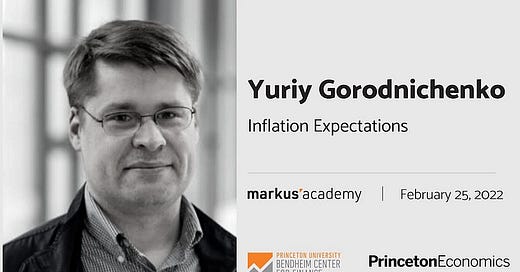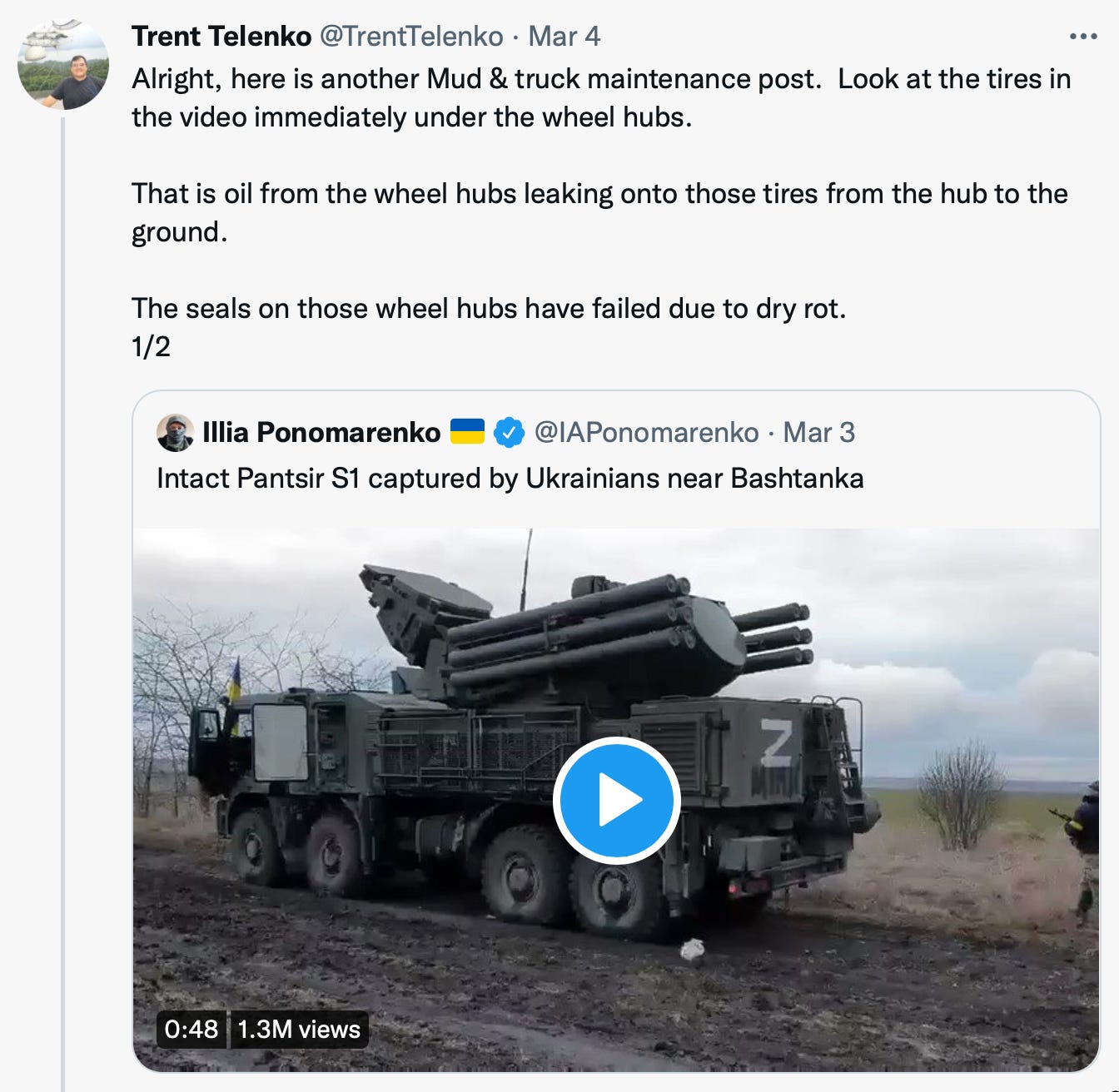Condition: News that Is Unfit to Print Department…
This is becoming increasingly common in the New York Times—or, at least, I am noticing it more.
Looking back, I see their decision to get rid of their annoying ombudsman as, perhaps, a key moment. The ombudsman restrained the institutional pressures toward “clickbait!” and “those beats won’t sweeten themselves”. And since then there has been a definite decline.
Of course, the decline started from an organization where Judy Miller was a star:
Nate Silver: ’Only in the 13th paragraph do you learn that only about 300 people are hospitalized with COVID on an island of 3 million, which is exceptionally good news and testament to the power of the vaccines….
Frances Robles: Puerto Rico Faces Staggering Covid Case Explosion: ‘The island had a 4,600 percent increase in cases in recent weeks after mounting one of the nation’s most successful vaccination campaigns…. Daily case count had surpassed 11,000…. Armed with her vaccine passport and a giddy urge to celebrate the holiday season…. Three days later, she was sick with Covid–19, one of about 2,000 people who fell ill as a result of the two-day event. “We did so well; we followed the rules,” said Ms. Delgado, a 53-year-old interior designer. “We followed the mask mandate. Our vaccination rate was so high that we let our guard down. The second Christmas came, we were like, ‘We’re going to party!’” The superspreader concert helped usher in an explosion of Covid–19 cases in Puerto Rico, which until then had been celebrating one of the most successful vaccination campaigns in the United States….. While the Omicron variant has besieged the entire country, it is especially worrisome in Puerto Rico…. Rafael Irizarry, a Harvard University statistician who keeps a dashboard of Puerto Rico Covid–19 data, tweeted the daunting facts: A third of all coronavirus cases the island has recorded since the start of the pandemic occurred in the past month. The number of cases per 100,000 residents jumped to 225, from three, in three weeks. In December, the number of hospitalizations doubled—twice…
LINK: <https://www.nytimes.com/2022/01/02/us/coronavirus-puerto-rico.html>
One Video:
Yuriy Gorodnichenko: Inflation Expectations <https://bcf.princeton.edu/events/yuriy-gorodnichenko-on-inflation-expectations/>:
One Picture:
“It takes about a year of not moving the vehicle for that to happen…”:
& if you do not want to support this ‘Stack, how about supporting one or more of these?:
<https://www.slowboring.com/> <https://messagebox.substack.com> <https://johnganz.substack.com> <https://www.fabricatedknowledge.com> <https://noahpinion.substack.com> <https://posts.themacrotourist.com>
Very Briefly Noted:
Dan Jones: Fulk FitzWarin: ‘The real-life outlaw who came to blows with King John was not Robin Hood—though his story probably inspired that more famous medieval renegade…
Matthew Yglesias: I’m Not Convinced by the New Lab Leak Debunking: ‘We’re left with… it would be an odd coincidence for a lab-leaked virus to have its first big super-spreading event at a live animal market, but it would also be an odd coincidence for a devastating zoonotic coronavirus plague to occur in a city that happened to host a lab doing research on coronaviruses. It’s… genuinely weird…
Tom Nichols: ’The Russians are going to lose… flatten Ukrainian cities and commit more atrocities…. Nothing will stop the Putin from crucifying Ukraine now. But the Putinist order… is now assured of collapse…. A war with NATO is the only thing… that can save his regime…. Don’t let him have what he’s probably praying for…

Ulrike Franke: ’Chief of the [French] defence staff [Thierry Burkhard] admits mistakes of French intelligence: "The Americans said the Russians were going to attack, they were right. Our services thought that the conquest of Ukraine would have monstrous costs and that the Russians had other options… <


Paragraphs:
Jeff Troutner: Shameful Behavior Ignored: ‘Cathie Wood…. On January 14, Jason Zweig of The Wall Street Journal wrote about the extraordinary rise and fall of Wood’s ARK Innovation fund…. Zweig gave the article a cute title: “How a Flood of Money Swamped Cathie Wood’s ARK.”… Over the first two calendar years of ARKK’s existence, the fund produced a cumulative return of only 2%. Then Ms. Wood got lucky. In 2017 the fund rose an amazing 87% (fueled mostly by her largest single holding, Grayscale Bitcoin Trust, which soared 1,600% that year)…. Woods also struggled in 2018 with a gain of only 4%. But in 2019 the fund jumped 36% and assets almost doubled to a still-modest $1.9 billion. Then COVID–19 hit. And her highly concentrated, speculative portfolio soared 157% in 2020. Did she know Anthony Fauci and possess some insider knowledge of what was going on at the Wuhan Institute of Virology? Not likely. She simply gambled with a billion or two of her investors’ money and hit the jackpot when the world went into lockdown. By the end of 2020, as word of Cathie Wood’s “unique genius” for recognizing profitable innovation became more widely known, a flood of new money moved into her fund and instantly made her extremely wealthy. Then the bottom fell out. Since early February 2021, the price of Wood’s ETF has crashed 60%…. So how does Jason Zweig feel about this? When you title your article “How a Flood of Money Swamped Cathie Wood’s ARK,” you immediately shift blame from Wood’s poor management and questionable stock buying and selling skills to investors making the classic mistake of trying to “buy past performance”…
LINK: <https://equiuspartners.com/shameful-behavior-ignored/>
Stephen Metcalf (2011): Robert Nozick, Father of Libertarianism: Even He Gave Up: ‘The Times Literary Supplement ranks Anarchy, published in 1974, as one of the “100 Most Influential Books Since the War,” and that, I think, is underselling it…. Free to pursue liberty as a matter of pure principle, Nozick let nothing stand in his way. Should we tax the rich to feed the poor? Absolutely not, as “taxation of earnings is on par with forced labor.” (Or more precisely: “Taking the earnings of n hours of labor is like taking n hours from the person.”) Well, isn’t at least some redistribution necessary on the basis of need? “Need a gardener allocate his services to those lawns which need him most?”… How could a thinker as brilliant as Nozick stay a party to this? The answer is: He didn’t. “The libertarian position I once propounded,” Nozick wrote in an essay published in the late ‘80s, “now seems to me seriously inadequate.”… Nozick concluded, “There are some things we choose to do together through government in solemn marking of our human solidarity, served by the fact that we do them together in this official fashion…”
Harold James: Gold Fetishism Has Had Its Day: ‘People often mistakenly see money as an asset—that’s the old fetishism. But money represents a value, one that needs to be earned. What ultimately makes a currency secure is credibility: the confidence of others. That will depend on whether a government observes laws and conventions. Money isn’t a shared illusion. It is rather a series of agreements and customs among and within countries. Violating some of those agreements can shatter the rest, destroying the privilege of money. A massive violation of norms can produce a massive loss of value. And a fortress of reserves offers no protection…
LINK: <https://www.ft.com/content/1de156dc-e4aa-4afb-accf-69c62193cbc6>
Ryan Avent: Making Economic Policy as if Democracy Matters: ‘America had two extraordinary opportunities to design and implement its vision of a global order, in the aftermath of the second world war… and then again after the fall of communism…. That western Europe and Japan would become reliably peaceful, prosperous, and democratic places was certainly not something that could be taken for granted 75 years ago…. Seeing off the Soviet threat without plunging the world into nuclear war was also a significant achievement, as was reestablishing an open global economy…. But if you had told the architects of the postwar order that while veterans of the second world war still lived, and despite the collapse of the Soviet Union and the seeming failure of communism, Europe would see another war of territorial aggrandizement by a would-be emperor, while a tide of authoritarianism rose as democracies wobbled, I think they would agree that something had gone badly wrong…
LINK:
Trent Telenko: Mud & Truck Maintenance: ’Look closely at these photos NOT at the destroyed tank, but the road under it. That road will fall apart under the weight of heavily loaded supply trucks after that tank is removed. There have been hundreds of such explosively destroyed & burned out fighting vehicles on the roads to the Ukrainian cities Russia wants to conquer. More and more road bed is going to be structurally destroyed by intense, hours long, heat of ammunition cook off. This is the attrition of war hitting Ukrainian roads that the road bound due to the Raputisa & bad tire maintenance Russian trucks have to use. One of the things that I was looking for in the build up of Russian forces around Ukraine was the stockpiles of sand, gravel and pre-made concrete structures to extensive road repair & maintenance required for extended mechanized combat operations. Captured Russian Army documents make clear Putin’s generals planned a three day “special operation” so they did not lay on the civil engineering supplies to support the road maintenance needed for artillery-heavy mechanized combat operations. Videos of the Russian Army 2nd strategic echelon movements that Putin’s generals didn’t think they would need are STILL not showing any of the civil engineering supplies necessary for the war they have. We should be seeing Russian civilian dump trucks filled with road building materials, flatbed semi-tractor trailers with pre-made culverts and excavators being staged in large numbers. There just aren’t any. This strongly suggest to me that Putin’s generals are on a very short economic clock regards how long Russia can fund combat operations. Think six to 10 weeks of high intensity mechanized combat operations. Being on “sand & gravel watch” was not on my bingo card for 2022…
LINK:


PAID SUBSCRIBER ONLY Content Below:
Subject: Teaching Data Science: Once Again, We Are Defeated…
I find myself, once again, profoundly disappointed with my attempts to write data-science exercises for my economic history classes: Python Exercise: B. Malthusian Economies: (due 2022-03-27 Su) <https://mybinder.org/v2/gh/braddelong/22-jupyter-ps02/HEAD>
The image in my mind of what I want to do is clear. Let me quote myself:
A couple of years ago, I had coffee with a student who had graduated in 2007, and who attributed a large chunk of the interesting and successful career he has had in the past decade-and-a-half—had in spite of the collapse of the job market in 2008-9—to the fact that he had been fluent in Microsoft Office when he left Berkeley. But now, he said—and I agree—it is no longer fluency in Word, Powerpoint, and (shudder) Excel that allows one to make oneself useful in a white-collar organization doing interesting work while one learns-by-doing. Rather, it is fluency in a language like Python, and the ability to script hooks into various Big Data and other APIs.
An analogy: Back in the medieval European university, people would learn the Trivium—the 'trivial' subjects of Grammar (how to write), Rhetoric (how to speak in public), and Logic (how to think coherently)—then they would learn the Quadrivium of Arithmetic, Geometry, Music/Harmony, and Astronomy/Astrology; and last they would learn the advanced and professional subjects: Law or Medicine or Theology and Physics, Metaphysics, and Moral Philosophy.
But a student would also learn two more things:
How to learn by reading—how to take a book and get something useful out of it, without a requiring a direct hands-on face-to-face teacher
How to write a fine chancery hand, so that they could prepare their own documents, for submission to secular courts or to religious bishops (or even just put them in a form where they would be easily legible to any educated audience back in Those Days).
In 1999 Python programming language creator Guido van Rossem compared the ability to read, write, and use software you had built or modified yourself to search and analyze data and information collections. Guido predicted that mass programming, if it could be attained, would produce increases in societal power and changes in societal organization of roughly the same magnitude as mass literacy has had over the past several centuries. Guido may be right, and he may be wrong. But what is clear is that your lives may be richer, and you may have more options, if the data science and basic programming intellectual tools become a useful part of your intellectual panoplies.
Thus the Data Science tools may well turn out to be in the first half of the 2000s the equivalent of a fine chancery hand, just as a facility with the document formats and commands of the Microsoft office suite were the equivalent of a fine chancery hand at the end of the 1900s: practical, general skills that make you of immense value to most if not nearly all organizations.
Why Jupyter and Python, rather than R-Studio and R, or C++ and MATLAB, or even Office? Because Jupyter Project founder Fernando Perez has an office on the fourth floor of Evans. Because half of Berkeley undergraduates currently take Data 8 and so, taking account of other channels, more than half of Berkeley students are already going to graduate literate in python.
Yet I am finding over and over again that I cannot write exercises that are (a) substantively interesting (I think) about the topics of economic history, (b) doable in reasonable time without much more handholding than our appallingly bad teacher-student ratio here at Berkeley allows by those who do not have programming experience, and (c) interesting as programming exercises for those who have.
So I have dropped (c)… **Sigh**
>









Word of warning on that Trent Telenko guy: he has some interesting but not completely novel observations, but like a lot of One Good Tweet types who get a sudden influx of followers, be careful with any grand pronouncements that go beyond his actual area of expertise.
The reality is that the best-informed military pundits will at this point admit they don’t know how this will go. That’s better than just assuming Ukraine is doomed, but let me just observe that road conditions in Ukraine are not unique to this year (or to Ukraine, given the border with Russia), and Ukrainians manage to move plenty of freight around anyway. So just beware of monocausal declarations.
That being said, the amount of material Russia is losing is extraordinary. The videos this morning (seemingly real, but not authenticated) of Z-marked civilian vehicles - cars, vans, coaches, dump trucks, and fuel trucks - being shipped by train do hint at high losses especially in supply vehicles. The focus on weapons over supply vehicles is common. Not just to angry dictators but the US suffered endless losses of contractor-driven supply trucks in Iraq too, albeit mostly after the invasion phase.
On Python: I have no advice. I think any reasonably intelligent person can learn to program. But learning how to program rarely involves exercises anyone is interested is revisiting, let alone ones that are also instructive in another realm. Unless you want to have two stages for all the material.
I confess as a child of the micro era it is amazing to me that schools (down to elementary) make no real effort to teach programming universally. It isn’t particularly hard. Though Python is almost as nit-picky and obscure in its own way as any other language.
The points on programming and data were on point though one can do a lot of things in Excel (I use Excel for financial analysis and don't need much more). When I was an undergrad many years ago at UC Santa Barbara, we only had Fortran on a mainframe for programming purposes. Over the years I've learned BASIC, C, and most recently Python. I never made the jump to C++ as the use of pointers in C was already a big leap for me. Python is pretty straight forward but the key to any of the languages is "use it or lose it"